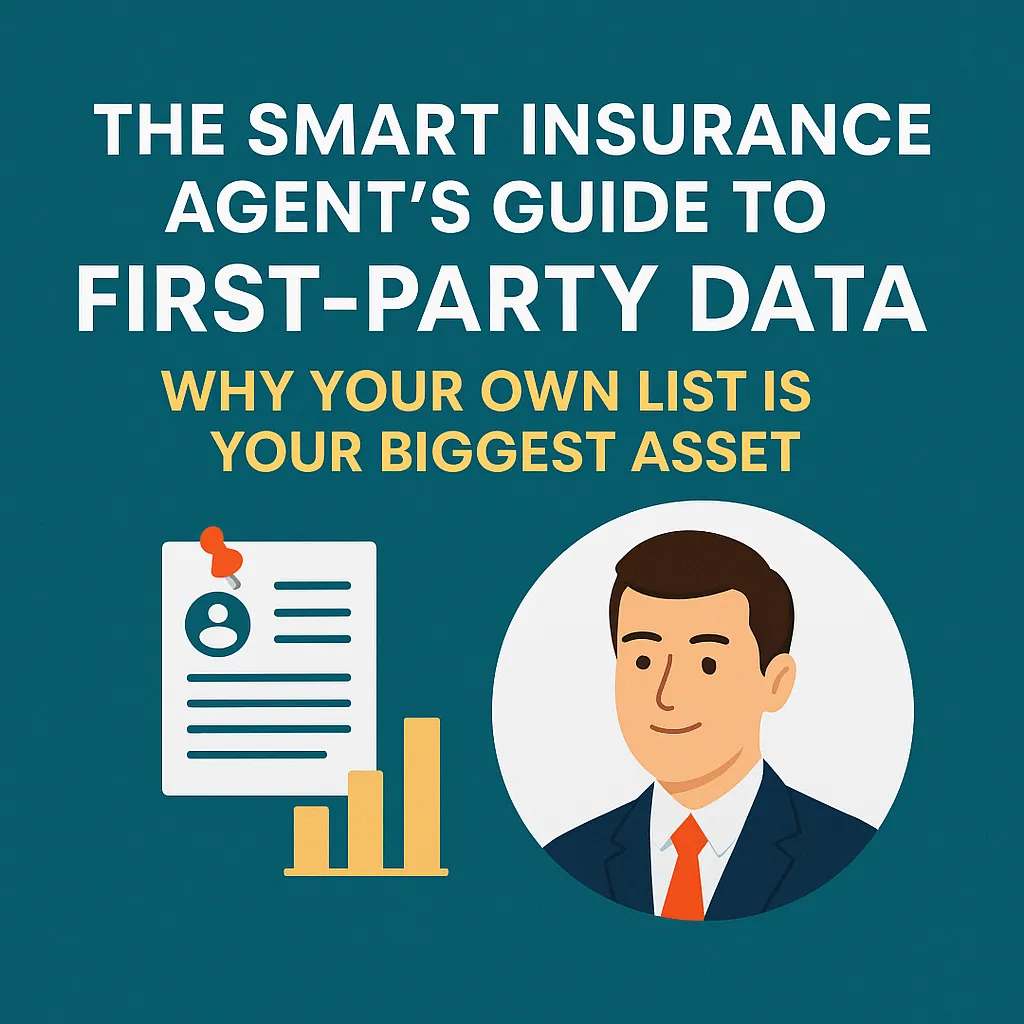
The Smart Insurance Agent’s Guide to First-Party Data: Why Your Own List Is Your Biggest Asset
The Smart Insurance Agent’s Guide to First-Party Data: Why Your Own List Is Your Biggest Asset
In a digital world filled with algorithms, lead providers, and rising ad costs, there’s one thing that separates high-performing insurance agents from the rest:
They own their audience.
We’re talking about first-party data—the email addresses, phone numbers, and behavioral data you collect directly from your leads and clients. Unlike the traffic you rent from Facebook or Google, your list is something you control, and when used right, it becomes your highest-converting, lowest-cost channel.
If you’re not actively collecting, organizing, and using your own data, this post will show you why now is the time to start.
What Is First-Party Data (And Why Does It Matter)?
First-party data is any information you collect directly from your audience.
For insurance agents, that includes:
People who filled out your quote form
Past clients in your CRM
SMS subscribers who opted in during a call or event
Email contacts gathered from website popups, giveaways, or downloadable checklists
What it isn’t: data you rent from a lead provider, buy from a list, or borrow from a social platform.
With third-party cookies on their way out, platforms like Meta and Google are giving more value to advertisers who feed them strong, clean, first-party signals.
Translation: if you’ve been depending on third-party lead sellers or just running cold ads, you’re losing an edge you could own.
5 Ways Insurance Agents Can Start Collecting First-Party Data Today
You don’t need fancy software or a massive following. You just need a consistent, intentional approach. Here’s how to get started:
1. Embed Lead Forms on Your Website
Not just landing pages—your homepage, blog articles, and even your “About Us” section should include embedded quote or contact forms.
2. Offer a Downloadable or Quote Checklist
Create a free, low-friction downloadable like “The 5 Things You Need to Get the Best Auto Quote” in exchange for an email address.
3. Capture SMS Opt-Ins
During phone calls or quoting flows, ask: “Can I text you if I need any documents?” Boom—consent, value, and channel.
4. Run a Refer-a-Friend Campaign
Turn your current clients into lead generators by offering a small reward for each successful referral—email or phone required.
5. Sync Data From Lead Providers Into Your CRM
Don’t just rely on the dashboard of the lead platform. Pipe that info into your CRM and tag it—this turns cold leads into future nurture opportunities.
How to Turn Your Data Into Sales
Collecting is only half the battle. Activation is where the magic happens. Here’s how to turn your first-party data into your best-performing channel:
Segment Your List: By product interest (auto vs. home), lead status (quoted, not bound), or recency.
Set Up Automated Drip Campaigns: Email or SMS sequences based on where the lead is in your funnel.
Create Lookalike Audiences From It: Upload your list into Meta Ads to target people just like your clients.
Run Retargeting Ads: Show specific offers only to users who opened an email, visited your quote page, or clicked a previous ad.
Bonus: this data also makes your reporting cleaner and your cost per acquisition lower over time.
Final Thoughts: Your List Is Your Leverage
You wouldn’t build a house on rented land. So why build your entire pipeline on leads you don’t own?
The agents winning in 2025 aren’t necessarily buying more leads—they’re building systems to own, activate, and grow the audience they already have.
Need help setting up the backend? At Little Giant, we help insurance agents turn first-party data into performance engines: from CRM workflows and automated texts to retargeting audiences built from your own client list.
Let’s make your list work harder than your ads.
